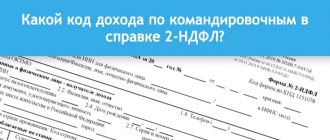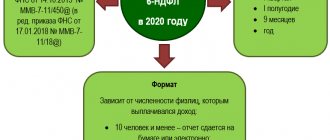When going on a business trip, an employee incurs expenses in the interests of the employer, therefore, these expenses are subject to compensation. In addition to travel, housing, negotiation costs, and other business expenses, daily allowances are also reimbursed. Per diem refers to additional costs associated with an employee’s accommodation outside his usual conditions. We will discuss below how to correctly calculate and issue daily allowances, how to confirm them for inclusion in the expense report, and what role daily allowance limits play in these calculations.
Question: For the upcoming business trip of employees, the organization plans to purchase tour packages to the city of residence. The tour package includes hotel accommodation on a full board basis and air tickets. Is it possible to take into account daily allowance in the amount of 700 rubles for the purposes of calculating income tax? for each day of a business trip and the cost of purchasing a tour package? View answer
How are daily allowances paid?
The most common questions asked by employees and employers on the Internet are:
- What are daily expenses for a business trip?
- Daily allowance and travel allowance: what is the difference?
- Is per diem paid for 1 day of business trip?
- Is per diem allowed on weekends while on a business trip?
Daily allowance (travel allowance) or daily allowance for business trips are additional expenses of an employee for living outside his place of residence (paragraph 4, part 1, article 168 of the Labor Code of the Russian Federation).
What is included in daily and travel expenses? Daily expenses (or daily allowances for business trips) include employee costs for food and similar daily needs . But expenses for travel (on a business trip and back home) and accommodation (for example, in a hotel) are paid to the employee separately. They are not included in travel expenses (per diems).
According to labor law, the employer must pay daily allowances for business trips:
- for each day an employee is on a business trip (daily allowances are calculated, including for weekends and holidays, days on the road, days of forced stop);
- sick days if the employee gets sick during a business trip.
If the employee was sent on a business trip, but can return home from there every day, in this case he is not paid . The decision on the daily return of the employee in each specific case is made by the manager, taking into account:
- range of the place of assignment;
- transport connection;
- purpose of the trip.
But daily allowances for traveling nature of work are paid in accordance with Art. 168.1 of the Labor Code of the Russian Federation, since such workers have constant work on the road.
As for the period for payment of daily allowances for business trips, it is not approved . It is more logical and correct to pay the business traveler an advance for daily expenses before the start of his business trip. Currently, the maximum duration of a business trip within Russia and beyond its borders has not been established . Therefore, it is very important to correctly calculate the advance for a business trip so that the employee is not left without money in a foreign city or country.
Types of travel expenses
An employer who sends an employee on a business trip is obliged to reimburse him for travel expenses. These expenses are listed in Article 168 of the Labor Code of the Russian Federation. These include:
- fare;
- housing rental costs;
- daily allowance (i.e. additional expenses associated with living outside the place of permanent residence);
- other employee costs agreed with the employer.
Thus, daily allowances are one of the types of travel expenses that an organization or individual entrepreneur must compensate to its employee.
Calculate the salary of a posted worker using the web service Calculate for free
Daily allowance amount
Accountants and personnel officers often look for information about the abolition of travel and daily allowances, a decree that cancels these expenses. There is no such resolution . But there is a Decree of the Government of the Russian Federation dated December 26, 2005 No. 812 “On the amount and procedure for payment of daily allowances in foreign currency and allowances for daily allowances in foreign currency for budget employees on business trips in foreign countries.” It was last amended on July 19, 2019. It describes how per diem is paid on a business trip.
For travel expenses, each employer determines the amount of daily allowance independently and enshrines this in its internal regulations - an order or regulation.
How much is the daily allowance? The fact is that in paragraph 12 of Art. 217 of the Tax Code of the Russian Federation specifies a daily limit when issuing daily allowances for business trips, which is exempt from personal income tax .
For a business trip in Russia it is 700 rubles, and daily allowance in foreign currency cannot exceed 2500 rubles. for each day of a business trip abroad.
How much per diem to pay - 100 rubles or 700 rubles - is decided within each company based on the distance of business trips, transportation support, etc.
The employer is not required to pay one-day daily allowances , since if the employee has the opportunity to return home on the same day, he does not incur additional expenses. Therefore, daily subsistence allowances are not paid for one day of business travel. The basis for this is para. 4 clause 11 of the Regulations on business trips.
If an employer decides to accommodate employees and pay daily allowances for a business trip for 1 day, he faces risks associated with taxation. In this case, the very legal nature of the concept “what is daily allowance on a business trip” is lost, as stated in the letter of the Ministry of Labor of Russia dated November 28, 2013 No. 14-2-242. In other words, daily allowances are not paid .
The procedure for paying travel allowances and reporting on them
Money for a business trip is given to the employee before the start of the business trip at the cash desk, or transferred to the card. When traveling abroad, daily allowance can be paid either in foreign currency or in rubles, recalculated at the exchange rate on the day of issue.
The amount intended to pay for travel, housing, food and other expenses of the employee, agreed upon with the employer, is registered as accountable funds. Upon return, the employee must report on them within three working days. To do this, you need to fill out an advance report and attach documents confirming these expenses. The employee must return the money that remains unspent to the employer (clause 26 of the Business Travel Regulations).
Expenses in foreign currency when traveling abroad must be converted into rubles:
- if the employee paid from a ruble card - at the rate set by the bank on the date the money was written off (letter of the Ministry of Finance of Russia dated January 22, 2016 No. 03-03-06/1/2318; see “The Ministry of Finance reminded how to determine the exchange rate in order to account for the costs of payment for accommodation on a business trip abroad");
- if an employee bought currency at an exchange office - at the rate indicated in the documents for the purchase of currency (letter of the Ministry of Finance of Russia dated June 15, 2011 No. 03-03-06/1/347; see “Ministry of Finance: the rate of currency purchased by an employee on a business trip abroad is determined according to the documents for its purchase");
- if the employee did not submit the primary document for currency exchange - at the rate of the Central Bank of the Russian Federation in effect on the date of issuing the accountable amount in rubles to the employee (letter of the Ministry of Finance of Russia dated 09/03/15 No. 03-03-07/50836; see “How to convert currency into rubles, if the posted worker has not submitted documents for its purchase").
An employee does not have to report on per diem, so per diem does not need to be registered as accountable funds. They should simply be given to the employee.
ATTENTION . Payment in lieu of daily allowance for a one-day business trip must be transferred to the employee for reporting along with money for travel and other travel expenses. Subsequently, the employee is obliged to report on such payment by presenting supporting documents to the accounting department.
Automatically calculate the salary of a posted worker according to current rules Calculate for free
Per diem allowance for a business trip abroad
Payment of daily allowances for business trips outside the Russian Federation is made in the following order:
- when staying and traveling around Russia, daily allowances are paid in the amount established by internal order or in accordance with local instructions on business trips in Russia;
- when staying and traveling through the territory of a foreign state, payment of daily travel expenses is made in the amount of 2,500 rubles per day (remember that this is a limit not subject to personal income tax).
Moreover, the procedure for paying daily allowances to business travelers is such that when crossing the territory of Russia - when the employee is just going on a business trip - the date of travel across the border of the Russian Federation is included in the days when daily allowances are paid in foreign currency . But when an employee returns from a business trip, the border crossing date is included in the days when daily allowances are paid in rubles.
EXAMPLE
Employee Sergeev S.S. sent from Moscow to Vilnius from March 1 to 5. The plane flies to Vilnius on March 1 at 7 a.m., and already on March 1 Sergeev S.S. is located in Vilnius. Therefore, the employee will receive the daily allowance for March 1 “at the foreign rate.” If Sergeev S.S. took off at 23:00 and landed in Vilnius at 0:50 on March 2, then for March 1 he would receive daily allowance according to Russian limits, and for March 2 - as abroad.
What is the daily allowance for on a business trip abroad? The same as in Russia: such payments cover the traveler’s expenses for food and the purchase of household items, since he is located outside his place of residence.
Briefly
- Daily allowances for seconded employees are calculated taking into account the maximum standards established by the Tax Code of the Russian Federation, 700 and 2500 rubles per day, respectively, for domestic and foreign trips.
- Any daily allowance can be registered in the LNA of a commercial company, but excess amounts are subject to personal income tax and contributions, except for contributions “for injuries.”
- According to income tax and under the non-profit system “income minus expenses”, daily allowances are taken completely into the tax base.
- A person sent on business for one day, without going abroad, may not receive daily allowance, unless otherwise stated in the LNA. Whether such a payment should be subject to personal income tax is a controversial issue - the tax service answers it positively, while the judicial authorities consider taxation illegal. The standard for daily one-day trips abroad is set at 50%, these amounts must be paid.
- The employee’s daily allowance must be advanced before the trip, and after providing him with an advance report and supporting documents, it must be recalculated to actual values.
- Settlements with the employee are adjusted towards additional payment or return of the excess funds issued. Expenses are recognized on the day the advance report is approved.
- Daily allowances for employees of the budgetary and municipal spheres are issued taking into account regulatory documents and acts of the relevant government structures.
How to determine daily allowance on a business trip
Travel expenses (per diem) must be paid before the start of the business trip and for all days spent on a business trip, starting from the date of departure and including the date of return.
Payment of daily allowances on weekends on a business trip is also made immediately. Regardless of whether the business traveler was resting or working that day.
It happens that they decided to send an employee on a business trip, signed an order and paid travel allowances. However, due to operational necessity or employee illness, the business trip was decided to be canceled or postponed. Then it is necessary to prepare an order to cancel the business trip or change its dates.
Daily allowances are also being waived. That is, the employee must return the money received if the trip does not take place.
EMPLOYEE'S STATEMENT FOR TRAVEL ALLOWANCE RETENTION: SAMPLE
It happens that an employee returns from one business trip in the morning, and in the evening he flies to another. That is, 2 business trips in one day. In this case, the daily allowance for this day is paid only for one business trip.
Let's look at an example of how to pay for 2 business trips according to the new rules. Let’s assume the daily allowance is 700 rubles.
EXAMPLE
Ushanov M.Yu. I was on a business trip in Saratov from March 1 to March 3, and on March 3 in the evening I had to fly to St. Petersburg. He will return back only on March 7th. How is the daily allowance paid in this case?
From March 1 to March 3: daily allowance must be accrued for 3 days.
From March 3 to March 7: must be credited within 4 days.
If the employee is entitled to 700 rubles. for daily allowance, then the amount of travel expenses for both business trips will be 3 × 700 + 4 × 700 = 4900 rubles, respectively.
Documentation and accounting
Within three days after returning, the employee is required to report on travel expenses, including daily allowance, and draw up an advance report, on the basis of which the previously issued advance will be recalculated.
For daily allowances, these are mainly travel documents and border crossing marks. If an employee used a personal car for the trip, he can present a waybill and any other document proving the official nature of his absence from work.
Based on these documents, a note-calculation for daily allowance is drawn up, which indicates:
- Full name of the employee, his personnel number;
- details of the order for sending on a business trip;
- business trip period;
- legal norm of daily allowance;
- actual issuance of daily allowance per day.
The main element of this note is the calculation of the issue: according to the norm, in fact, and the calculation of the excess amount issued, taking into account the days of the business trip. Exceeding the standard is considered if the organization has adopted increased norms for issuing daily allowances compared to the maximum established ones.
Attention! The calculated daily allowance is entered into the advance report as a separate line.
Filling out an advance report
When filling out an advance report, the employee will be required to have documents with him that confirm the expenditure of the daily allowance. The advance report is a completed form No. AO-1.
Procedure for filling out an advance report:
Compilation of a report
- The first paragraph of the advance report is the name of the organization
- Report date and number
- The position of the posted employee and the work unit
- The reason for drawing up the report is indicated (business trip)
- The report includes all actual expenses incurred during the trip.
- Sheet number 2 lists all expenditure documents on which each expenditure of the money issued is recorded.
- Then the report is approved by the accounting department, where the debit and credit numbers are written down
- The completed expense report is submitted to the manager, he approves and signs
One-day business trip and expenses
The law does not establish a minimum duration for a business trip, so it can be one day. Its registration is carried out in the same way as a multi-day one: an order is issued, a mark is placed on the working time sheet. After the end of the trip, payments for travel and other agreed amounts are made.
For one-day work trips, compensation is not due, but any sending of an employee on a work trip requires certain expenses from him, so leaving a posted employee without payment is not a good decision. In this case, it is mandatory to issue compensation for trips abroad. It can be charged in the amount of 50% of the established amount in the company’s local documents. When traveling within the Russian Federation, the amount of accruals can be set by the company independently at the request of management.
Expense recognition date
As a general rule, when using the accrual method, daily allowances are recognized as expenses on the date of approval of the advance report (subclause 5, clause 7, article 272 of the Tax Code of the Russian Federation). When using the cash method to recognize expenses, it is necessary to confirm the fact of their payment. However, when issuing an advance to an employee for a business trip (taking into account the approximate amount of daily allowance), no expense arises. The amount of daily allowance can be determined only after the employee submits an advance payment. This means that expenses must be recognized no earlier than the date of approval of the advance payment. This conclusion follows from paragraph 3 of Article 273 and Article 252 of the Tax Code of the Russian Federation.
With daily allowances when traveling abroad, it is more difficult, since we are talking about currency. There are two options.
Option 1. The organization issues currency to the employee. In this case, expenses arise in the form of bank commissions. Also, most likely, you will need to take into account exchange rate differences.
Option 2. The employee buys the currency himself. Initially, the employee was given a daily allowance in rubles, and he then independently bought the required amount of currency. Under these circumstances, it all depends on whether the employee can document the fact of purchasing currency or not.
Example of personal income tax payments from daily allowances
Local acts of the organization set the amount of daily allowance for trips within the Russian Federation in the amount of 1000 rubles. The employee was sent to Kazan for 5 working days (from September 3 to September 7, 2021). The employee left for his destination on September 2 and arrived back on September 8. What amount of daily allowance will be paid and the amount of personal income tax.
During a business trip, daily allowance will be paid for 7 days in the amount of 7,000 rubles.
Based on the legislation, 700 rubles are not subject to personal income tax. per day of stay on a business trip, which means 4900 rubles are not taxed, the amount in excess of these norms will be subject to personal income tax - 2100 rubles.
The personal income tax amount will be:
2100 rub. * 13% = 273 rub.
Terms of withholding personal income tax from business trips
The date of receipt of income for excess daily allowance, as well as for the average salary during a business trip, is the last day of the month in which it was accrued.
For example, an employee was on a business trip from September 2 to September 8, 2021, travel allowances were transferred on August 27. This means that on the last day of September - the 30th, he needs to calculate the salary based on the average for the time that the employee spent on a business trip and calculate personal income tax, and the excess daily allowance listed in August relates to the income of August, but it is treated as prepaid income , which is considered as such after approval of the business trip report, so personal income tax must be calculated with the next salary payment (for example, an advance for September). Personal income tax is withheld on the day the income is paid and transferred on the next business day.
An example of reflecting daily amounts in excess of the standard (RUB 700) in section 2 of 6-NDFL
The employee reported on August 29, 2021. Will the salary for August 2021 be paid on April 5, 2021?
Personal income tax on the amount of daily allowance in excess of the limit must be withheld from the amount of wages paid (09/05/2021). Personal income tax must be transferred no later than 09/06/2021.
Section 2 of the calculation in form 6-NDFL for 9 months of 2021 must be filled out as follows:
100 – 31.08.2021
110 – 05.09.2021
120 – 06.09.2021
130 – daily allowance over the limit
140 – withheld personal income tax from daily allowances above the limit
When - before or after a business trip - are daily allowances paid?
Daily allowances, like other funds included in the advance payment, are issued to the business traveler before the trip.
The timing and method of transferring the advance (in cash, to a bank card) can be fixed in internal regulations, for example in the regulations on business trips.
You can learn more about the application of the regulations on business trips in the article “Regulations on business trips - sample 2017”.
However, a scenario is possible in which the daily allowance may be paid additionally after the trip. If an employee was forced to spend part of the issued daily allowance on transport or accommodation (which must be paid 100% by the employer), then upon returning to work the accounting department will return the amount spent to him.
Taxation on personal income
When subject to personal income tax, daily allowances are subject to rationing. Clause 3 of Art. 217 of the Tax Code of the Russian Federation determines that when an employer pays a taxpayer expenses for business trips both within the country and abroad, the income subject to taxation does not include daily allowances paid in accordance with the legislation of the Russian Federation, but not more than 700 rubles. for each day of a business trip on the territory of the Russian Federation and no more than 2,500 rubles. for each day you are on a business trip abroad.
Thus, daily allowances in an amount not exceeding 700 rubles are not subject to personal income tax. for each day of a business trip within the country and 2,500 rubles. for each day you are on a business trip abroad. Moreover, these norms apply not only to employees of commercial firms, but also to employees of organizations financed from the budget. This was pointed out by the arbitrators back in 2005 in the decision of the Supreme Arbitration Court of Russia dated January 26, 2005 No. 16141/04 “On invalidating the letter of the Ministry of Taxes and Taxes of the Russian Federation dated February 17, 2004 No. 04-2-06/127 “On the taxation of compensation payments for reimbursement of expenses, related to business trips."
If an organization pays daily allowances in excess of its “internal” norms, then the excess amount is also recognized as taxable income of an individual, and, therefore, the organization must withhold personal income tax from the employee and transfer it to the budget [FOOTNOTE Similar explanations are contained in the letter of the Ministry of Finance of Russia dated June 11 .2009 No. 03-04-06-01/133.].
By virtue of Art. 224 of the Tax Code of the Russian Federation, taxation of the excess amount is carried out at a rate of 13%. The organization is obliged to withhold the calculated amount of personal income tax directly from the employee’s income on the date of payment of income (daily allowance), the Ministry of Finance of Russia indicated this in its letter dated 02/01/2008 No. 03-04-06-01/27.
If we are talking about excess daily allowances paid to a posted employee in foreign currency, then the taxable income of an individual must be recalculated into rubles at the rate of the Central Bank of the Russian Federation valid on the date of their payment, this is also indicated in the letter of the Ministry of Finance of Russia dated 01.02.2008 No. 03 -04-06-01/27.
The standardization of daily allowances for personal income tax purposes applies only to daily allowances paid for business trips of employees and their trips to improve their qualifications. Other types of daily allowances are not subject to rationing for personal income tax purposes. This follows from paragraph 3 of Art. 217 Tax Code of the Russian Federation. Consequently, “traveling” daily allowances established by a collective agreement, other local act of the company or provided for in an employment contract are not subject to personal income tax in full.
Day trip
As to whether daily allowances paid to an employee for one-day trips are taxable income of an individual, Chapter 23 “Individual Income Tax” of the Tax Code of the Russian Federation does not contain a specific answer.
Nevertheless, tax authorities consider such payments as taxable income of an individual and require personal income tax withholding. Please note that arbitration practice on this issue is not clear-cut. Some courts agree with the arguments of the tax authorities, as evidenced, for example, by the resolution of the Federal Antimonopoly Service of the North Caucasus District dated May 19, 2009 in case No. A32-2910/2008-29/78-56/24. Others, on the contrary, consider the demands of controllers to be unlawful, as indicated, in particular, by the resolution of the Federal Antimonopoly Service of the Central District dated May 27, 2008 in case No. A62-4451/2007.
Due to the fact that the issue of withholding personal income tax on daily allowances paid for one-day business trips is not regulated, the company will have to independently decide whether it will recognize these amounts as taxable income of an individual or not.
Answers to common questions
Question No. 1 : Do I need to pay travel expenses for an employee who is sent to a separate unit located in another city?
Answer : It is, on the basis that on a business trip an official task must be completed in another place. The separate unit is located outside the employee’s place of permanent work, so the trip is considered a business trip.
Question No. 2 : Is there any penalty for not calculating personal income tax on excess daily allowance?
Answer : If an organization pays daily allowances above the norm, then you need to pay personal income tax on them, if you don’t pay it, the Federal Tax Service will issue a fine (20% of the amount not transferred) and charge penalties.
Insurance contributions for compulsory types of social insurance
As is known, from January 1, 2010, the unified social tax (UST) is not collected on the territory of the Russian Federation, since Chapter 24 of the Tax Code of the Russian Federation has lost force. However, the abolition of the unified social tax did not actually lead to a reduction in the tax burden on the employer, since the UST, in fact, replaced insurance contributions, the procedure for calculation and payment of which is regulated by the norms of the Federal Law of July 24, 2009 No. 212-FZ “On Insurance Contributions to the Pension Fund of the Russian Federation, the Social Insurance Fund of the Russian Federation, the Federal Compulsory Medical Insurance Fund and territorial compulsory medical insurance funds (as amended on December 25, 2009; hereinafter referred to as Federal Law No. 212-FZ).
According to Federal Law No. 212-FZ, persons making payments and other remuneration to individuals are recognized as payers of insurance premiums:
• for compulsory pension insurance;
• compulsory social insurance for temporary disability and in connection with maternity;
• compulsory health insurance.
In accordance with Part 2 of Art. 9 of Federal Law No. 212-FZ, when payers of insurance premiums pay expenses for business trips of employees, both within the territory of the Russian Federation and outside the territory of the Russian Federation, daily allowances are not subject to insurance premiums. Consequently, the payment of daily allowances for business trips does not entail the obligation for the employer to calculate the specified insurance contributions. Although it is possible that regarding one-day daily allowances, regulatory authorities will insist on their accrual. This assumption can be made based on the experience of collecting unified social tax.
Let us recall that during the period of payment of UST, an organization paying daily allowances for daily business trips had the opportunity not to accrue UST for such payments, guided only by the norm of paragraph 3 of Art. 236 of the Tax Code of the Russian Federation (repealed from January 1, 2010). Today there is no such possibility, since Federal Law No. 212-FZ does not link the calculation of insurance premiums with the procedure for recognizing payments made in favor of individuals for profit tax purposes. This, in turn, means that insurance premiums must be calculated even on those payments that are not taken into account for income tax purposes.
Day trip
At least in Art. 9 of Federal Law No. 212-FZ states that daily allowances paid during business trips are not subject to insurance premiums, and in the amounts established by the “internal” standards of the company itself, but it is possible that in relation to daily allowances paid during one-day business trips, regulatory authorities will insist on the need to accrue them. This is exactly how things were previously with the taxation of unified social tax in terms of daily allowances paid for one-day trips, and arbitration practice on this issue was not unambiguous. For example, in the resolution of the Federal Antimonopoly Service of the Volga-Vyatka District dated August 16, 2007 in case No. A28-1084/2007-3/29, it was stated that the payment of such daily allowances entails the obligation to accrue the unified social tax.
At the same time, in the decision of the Federal Antimonopoly Service of the North-Western District dated March 13, 2008 in case A56-17909/2007, the court made the opposite conclusion.
So far, regarding the need to charge insurance premiums from daily allowances paid for one-day business trips, there are no official clarifications from regulatory authorities. Taking this into account, as well as the existing arbitration practice regarding the unified social tax, we can conclude that the non-accrual of insurance premiums from one-day daily allowances from organizations paying them is associated with increased risks.
And paradoxically, in Art. 9 of Federal Law No. 212-FZ “traveling” daily allowances are not mentioned. Consequently, their payment is subject to insurance premiums.





